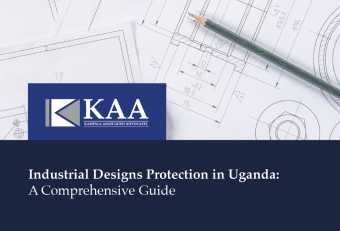Case Overview: In a recent landmark employment ruling (Kavuma Dianah v. National Social Security Fund), the Industrial Court dismissed a claim for wrongful termination and clarified two critical components of procedural fairness: the right to cross-examine witnesses and the scope of fair hearing obligations during internal appeal proceedings.
The Claimant had alleged that her dismissal was unfair due to the absence of cross-examination rights at the disciplinary hearing in relation to some of the witnesses who had been interviewed during an investigation process and were not called to testify and the lack of an oral hearing during her internal appeal. She further challenged the validity of the disciplinary committee’s findings on grounds of insufficiency of evidence.
Key Findings of the Court:
- No Automatic Right to Cross-Examine Witnesses in Disciplinary Hearings
Court acknowledged that one of the rights to a fair hearing includes the right to cross-examine the employer’s witnesses. However, the Court noted that the failure of witnesses to show up for cross-examination would not be a standalone reason to declare disciplinary proceedings unlawful or unfair.
In this case the Court found that the employee was afforded a full opportunity to respond to the charges against her and had exercised her right to submit written responses and be represented during the hearing. The Court furthermore held that the right to cross-examine witnesses is but one of various rights at the disciplinary hearing, and it would not be a sole reason to declare the disciplinary hearing unlawful or unfair, thereby rendering a dismissal unlawful. In the present case, the Claimant did not ask to cross-examine any witness and the opportunity was refused.
This reinforces the principle that the essence of a fair hearing is an opportunity to be heard, not necessarily through a formal courtroom-like process.
- Internal Appeals Are a Courtesy, Not a Legal Entitlement
The Claimant’s contention that her internal appeal was procedurally defective because it was conducted on paper (without oral submissions) was rejected by the Court.
“The fairness of an internal appeal is not subject to court scrutiny. An appeal is not a statutory requirement, and the lack of an oral hearing at that level does not render the original dismissal procedurally unfair.”
This ruling confirms the principle that the question of procedural fairness is limited to the disciplinary process, rather than any internal appeals process. The Court that upheld the principle that, the practice of internal appeals is not a statutory obligation, but it is a courtesy of the employer. It cannot, therefore, be said that any legal prejudice will befall an employee whose internal appeal is not handled properly, or at all.
- Employer’s Reasonable Belief in Misconduct Was Justified
The Court found that the employer acted based on a reasonable belief in gross negligence, supported by audit findings and internal documents.
“The employer was justified in dismissing the employee under Section 67(2) of the Employment Act, based on the established facts and her own admissions.”
Key implications for Employers:
- Internal appeal processes are an optional courtesy and there is no requirement to follow any particular appeals procedure as long as decisions are reasoned and communicated.
- Employers may act on credible internal investigations without needing to conclusively prove employee misconduct.




